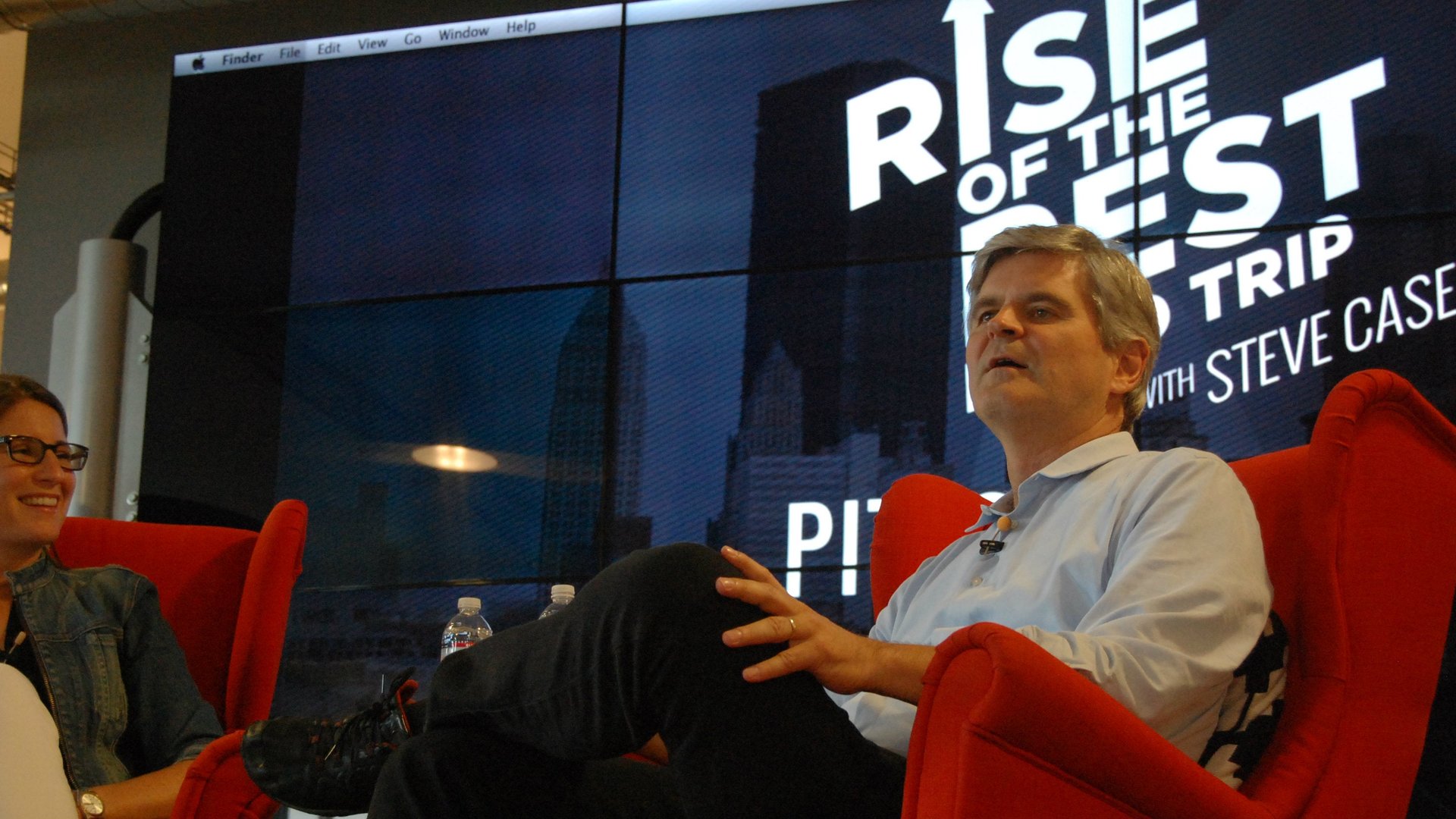AOL co-founder Steve Case on the relationship between Washington and Silicon Valley
Today (Aug. 4) the White House is hosting its first-ever Demo Day, where entrepreneurs from a diverse range of backgrounds are sharing their startup stories. The event coincides with announcements from a number of tech companies that have committed to pursuing more diversity in recruiting, and announcements from 40 venture capital firms—including Kleiner Perkins and Andreessen Horowitz—that have agreed to track diversity internally and within their portfolio companies.


Today (Aug. 4) the White House is hosting its first-ever Demo Day, where entrepreneurs from a diverse range of backgrounds are sharing their startup stories. The event coincides with announcements from a number of tech companies that have committed to pursuing more diversity in recruiting, and announcements from 40 venture capital firms—including Kleiner Perkins and Andreessen Horowitz—that have agreed to track diversity internally and within their portfolio companies.
On a press call this morning, US chief technology officer (and former Google executive) Megan Smith spoke about the diversity problem in tech, which is an increasingly hot topic, and shared that just 3% of companies that receive venture capital are led by women, while only 1% are led by African Americans.
Also on hand at the White House today: AOL co-founder Steve Case, who was there to announce his plans to invest an additional $1 million into startups as part of his Rise of the Rest bus tour of the country. Rise of the Rest is a campaign designed to fund entrepreneurs in regions outside of startup capitals like San Francisco and New York.
After leaving AOL, Case founded Revolution, a venture capital firm based in Washington DC, and has become a fixture on Capitol Hill for pushing legislation to remove barriers to entrepreneurship. He is one of the White House’s presidential ambassadors for global entrepreneurship and recently joined US president Barack Obama in Nairobi for the Global Entrepreneurship Summit. Case answered a few questions for Quartz about inclusive entrepreneurship, the arbitrage opportunity for investors who are willing to look beyond the places where access to capital is already plentiful, and why Washington is about to get a lot more involved in Silicon Valley’s work. The transcript that follows has been lightly edited for length and clarity.
Quartz: How can we level the playing field for entrepreneurs?
Steve Case: Some of those barriers are regulatory, and some of those barriers are a market-entry strategy. [In 2014] 75% of venture capital went to three states. We want to give every entrepreneur a shot, whatever their background happens to be, so that the field is not so dominated by California and dominated by white guys.
Entrepreneurs in Detroit or Des Moines, and those who happen to be of color, create the same opportunities [for arbitrage]. There’s a potential for arbitrage in “Rise of the Rest” regions, where there’s not so much capital chasing those companies—not that companies in a place like Indianapolis will go public at a lower valuation; eventually the market is efficient, based on momentum and growth. [So] Wall Street isn’t saying those companies are “based in a Rise of the Rest region.” But VCs are saying that, because for the most part they’re ignoring those cities. It’s an opportunity for arbitrage.
Why encourage folks to go into entrepreneurship when so many startups fail?
It’s true that startups are risky, entrepreneurship is risky. We built this country based on taking risk, floating on boats here hoping for a better life. We started AOL when only 3% of people were online.
What are some of the legislative initiatives you’ve pushed on Capitol Hill?
As a member of president Obama’s Jobs Council, we said the one priority was access to initial capital. The JOBS Act was created three years ago and it did change the IPO landscape. There were more IPOs in past three years than in the previous three years, though not all because of the JOBS Act. It also legalized crowdfunding for average investors, but the SEC still has to finalize the rules.
There’s [also been] progress around immigration, but we weren’t able to pass immigration reform. Immigration is a hot topic. Nearly half of successful tech companies have at least one immigrant co-founder.
How would you describe the relationship between Washington and Silicon Valley?
A little confused and a little anxious. There’s growing recognition between Washington and Silicon Valley. There’s this center of gravity in Silicon Valley, and Silicon Valley is realizing that the game is changing. The last 10 years were dominated by the app economy, and the next 10 years will involve disruption of sectors like food, education, and transportation. Government as a regulator and as a customer is particularly important. Policy will play bigger role.
There’s no particular desire to engage in Silicon Valley; they wish the government would go away. But the government is going to be involved.